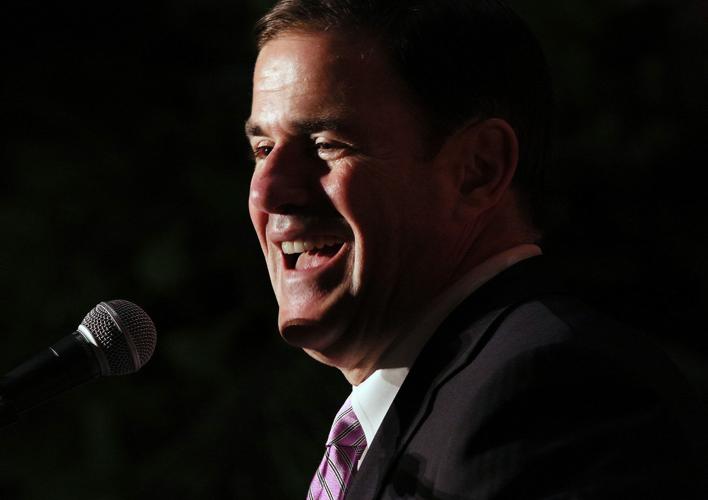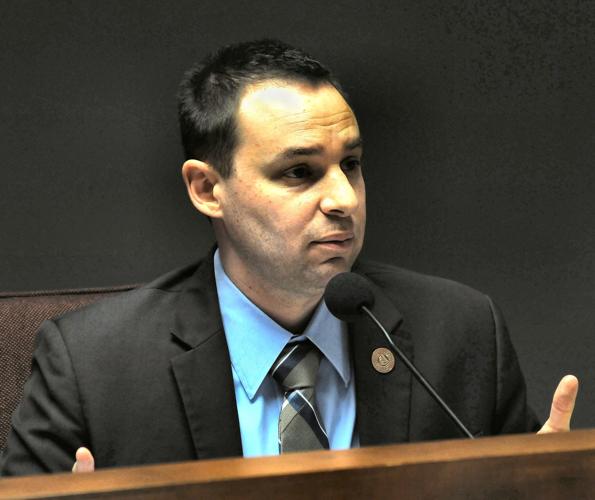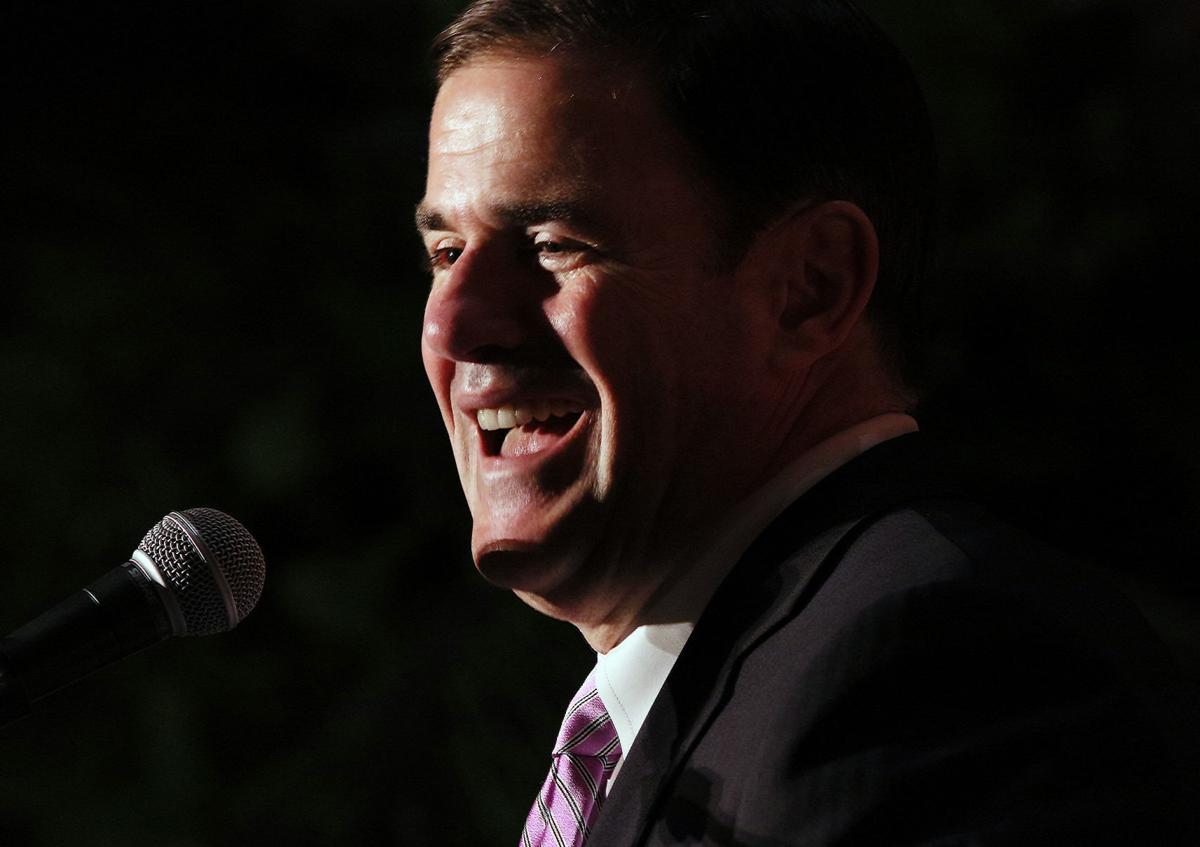PHOENIX — Defying both Democrats and their own Republican governor, GOP lawmakers voted Monday to cut income tax rates across the board to prevent what they believe would be a “windfall” to the state on the backs of Arizona residents.
On party lines, the House Ways and Means Committee voted to cut state income tax rates across the board by 0.11 percentage points. The net effect of HB 2522 would be to reduce state revenues this year by about $150 million.
Moments later the Senate Finance Committee gave its blessing to SB 1143 that does the exact same thing.
But Sen. J.D. Mesnard, R-Chandler, said there really is no tax cut, as that $150 million simply offsets the additional dollars the state stands to gain because of changes in federal tax laws. And he lashed out at foes who chided Republicans for pushing what they say is a tax cut.
“How can a revenue neutral bill be a tax cut?” he asked.
The bills, which now go to the full House and Senate, come despite the fact that about 20,000 returns already have been filed with the Department of Revenue — returns that were filed using the higher tax rates that Gov. Doug Ducey presumed lawmakers would approve.
Grant Nulle, the agency’s deputy director, told lawmakers if they adopted their plan, and not the one the governor wants, he figured it would take about four weeks to make all the changes in the forms and the department’s computers. That means any returns already filed and those that people are turning in now — about two-thirds of Arizonans anticipate refunds — will be incorrect.
Nulle said, though, that if the bills become law his agency could recompute what each taxpayer owes and send out correction notices.
That assumes either bill will become law.
Monday’s votes came over the objections of Ducey who has proposed that any additional dollars be put into the “rainy-day” fund, a savings account that can be tapped during economic downturns when tax revenues don’t keep pace with expenses.
The measures also are opposed by Democrats who said the state should keep the excess money that would flow to the state because of changes in federal tax laws. They cited needs ranging from education to road funding.
They said that while the cut in tax rates would be across the board, the real beneficiaries are those at the top of the income scale, the people who already are going to get benefits from the changes in federal tax law signed in late 2017 by President Trump.
First-term Rep. Andres Cano, D-Tucson, said the measures will do little to help lower income residents.
“The irony of the bill in front of us is not even my single mom of 10 years ago or the hardworking Arizonan that she is today would stand to benefit from this legislation,” he said, figuring that the dollars paid by people at the bottom of the pay scale saved with a 0.11 percentage point reduction are minimal. By contrast, Cano said, those near the top would see big-dollar reductions in what they owe the state.
“Instead of giving a tax break to mom, this bill puts more money into the hands of millionaires and billionaires who don’t have to worry about where or how their child is sleeping, what they’re eating, or how they’ll pay this month’s bills,” he said.
Arizona generally allows state residents to take the same deductions allowed by federal law. But the new federal law trimmed some of these.
If Arizona conforms to the federal tax changes, lawmakers estimate the additional revenues for the state because of the changes would be about $150 million.
The proposals by Mesnard and Rep. Ben Toma, R-Peoria, to cut rates by 0.11 percent points would reduce overall tax collections by that much. That’s the money Ducey and the Democrats want to keep.
Toma said that would be wrong.
“That windfall, if you want to call it that, was intended for taxpayers’ pockets, not for the state to essentially get lucky by simply conforming and increasing taxes,” he said.
David Wells, research director of the Grand Canyon Institute, said while the cut in tax rates is across the board, the bills do not provide the same level of relief.
Wells said the top 1 percent of Arizonans — those with incomes above $800,000 a year — will save $30,000 a year because of the changes in the federal tax code. He said full conformity, without a state tax cut, would, increase their state tax liability by about $3,000.
“So they still come out way ahead overall,” Wells said.
By contrast, he said, those at the median household income level of about $61,000 a year will pay just $36 more with full conformity. And Wells said those near the bottom would not be affected at all by full conformity with federal law and the state keeping the windfall because they’re the ones most likely to take the standard deduction and be unaffected by changes in what can be itemized.
“The people in the million-dollar homes, they’re already going to get a huge benefit from the Trump tax plan, the federal income tax,” said Rep. Pamela Powers Hannley, D-Tucson. “I’m concerned about the people living in the trailer parks.”
But Mesnard questioned the assumption that only the rich are hit when deductions are eliminated. He cited limits on deductions for interest on new home equity loans.
“Many people consolidate their debt, whether it’s credit card debt, their car, whatever, into a better interest rate they would get on their home,” he said. “And now they’re losing the tax break.”
Rep. Mitzi Epstein, D-Tempe, said there’s a good reason for the state to keep the extra dollars.
She said while the federal taxes are being cut, so is the amount of money Washington is providing to states.
That includes the KidsCare program which provides low-cost health insurance for the children of the working poor, with the full federal subsidy going away in September. Epstein said the extra dollars could be used to help underwrite the additional state costs.
As it turns out, Ducey wants the state to pick up that shortfall. But he is not relying on the conformity dollars, saying there’s enough coming in from other sources.
The bill are being rushed because Monday was the first day the state Department of Revenue began processing income tax returns. And the department has prepared the tax forms and instructions under the premise that the state would fully conform and keep all the extra revenues, with no cut in the tax rate.
In fact, Grant Nulle, the agency’s deputy director, told lawmakers that the department already has received about 18,000 tax returns filed electronically, with officials estimating another 1,400 returns have been filed on paper.







